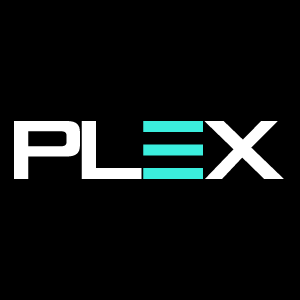

Now Available!
Get your copy of the 7th Annual State of Smart Manufacturing and hear from 300+ manufacturers in this new survey report!
Subscribe to Our Blog
For a monthly digest of expert insights, data points, and tips like the ones in this article.
From Farm to Factory: How Fertilizer and Material Shortages Affect Food and Beverage Manufacturers
Food & Beverage, Supply Chain ManagementIt’s become a perfect storm. Massive disruption of supply chains for food products is becoming a regular threat. Driven by lingering COVID-19 impacts, the war in Ukraine, and other factors, there’s a global shortage of fertilizer.
This shortage of fertilizer is driving new challenges for the food and beverage industry. In the U.S. alone, corn, soybeans, and wheat account for 70% of fertilizer use. And these three ingredients are core inputs for many food and beverage companies.
The problem of fertilizer shortages is compounded by rising fertilizer costs for the available supplies. Just in 2022, the price of fertilizer has risen 78%. And expectations are that many countries will take land out of production by up to 20% to ride out the shortage or because they can’t afford to purchase.
How Food and Beverage Manufacturers are Affected by Fertilizer Shortages
There are several direct impacts on food and beverage manufacturers. These include:
- Higher Raw Materials Cost – Higher prices must be factored into product costing, but many food and beverage manufacturers are already operating at thin margins due to other disruptions.
- Substitutions – The shortage of standard raw materials has necessitated innovation in product substitutions. Companies have begun looking for available and cost-effective substitutes for many ingredients as a temporary workaround or a permanent solution.
- Compliance Headaches – Just because there are material shortages doesn’t let food and beverage manufacturers off the hook for regulatory compliance. In fact, it compounds these problems. Substitutions must quickly pass muster, and documentation must remain meticulous.
- Vendor Relations – Many companies built their product lines on the assumption of stable supply chains, but fertilizer shortages have forced them to look elsewhere for the same materials. This search brings about added quality concerns and the possibility that they may need to source from several suppliers at varying prices, impacting established economic order quantities (EOQ).
- Facing Hard Choices – The shortages for many companies have become so severe that they’re faced with difficult choices to cut production levels on some of their most profitable lines. They also have to consider discontinuing popular but low-volume products to ensure raw material supplies for high-volume products are at the core of their brand.
How Smart Manufacturing Platforms Help Manage Severe Disruption
The food and beverage industry is already highly competitive and hyper-regulated. Managing production has always been challenging, but the current fertilizer shortage is likely to last several years, and the changes it brings may last even longer. As a result, many in the industry have found that a smart manufacturing platform is the most effective way to address these challenges and develop new strategies and optimized processes to move forward.
Manual data collection and analysis have already been a drain on resources as well as being extremely limited and error-prone. With the added burdens brought on by an unprecedented shortage of raw materials, not using a data-driven smart manufacturing platform could make the difference between remaining competitive or losing business to others.
Consider the ways a smart manufacturing platform helps in tough times like these:
- Accurate Compliance – A smart manufacturing platform will let you automate many compliance functions. Substitutions, documentation, approvals, rejections, and other critical data are automatically updated across the platform for all users.
- Data-Driven Process Automation – While all companies look to improve processes, the shortage of raw materials means smaller lot sizes and faster pivots. This reality means that process automation within a smart manufacturing platform will give you an edge from deeper analysis and insights to make the best decisions possible at the point of production.
- Better Supply Planning – With an influx of new vendors and quality concerns, automated communications and contracts within a smart manufacturing platform can bring great benefits. While EOQ from a single large supplier may be on hold, a smart manufacturing platform will help acquire EOQ in the aggregate from multiple suppliers and automate purchasing and order processing.
- Making the Hard Choices – Cloud-based analytics and data-driven insights provide you with valuable information on profitability and margin, with features like ABC analysis. Alongside robust “what-if” contingency planning capability, these tools will help your team decide which profitable products to retain and which to drop or reduce.
A Smart Manufacturing Platform Is a Smart Business Ingredient
Fertilizer shortages compound an already difficult era of disruption for food and beverage manufacturers. Managing these challenges with traditional software has become extraordinarily difficult, and managing them manually is next to impossible. But with the right smart manufacturing platform, your team will have the “ingredients” and data-driven power to plan, supply, execute, and manufacture your products competitively despite the challenges thrown your way.


